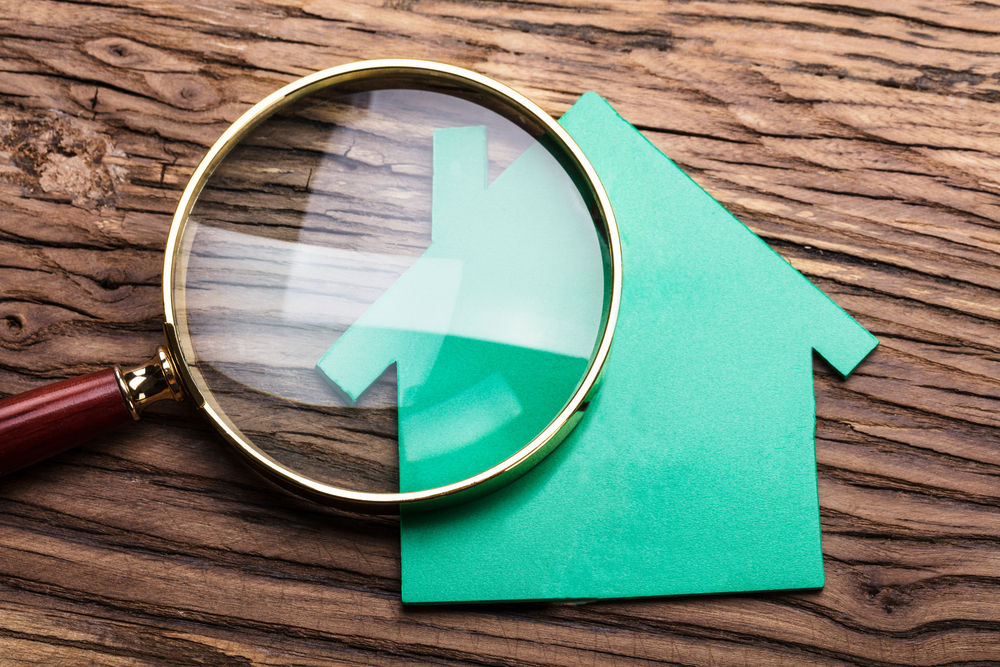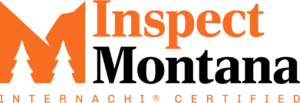The Future of Home Inspections: Emerging Technologies and Trends

In a world driven by technological advancements, the home inspection industry is undergoing a quiet revolution. With innovations reshaping how inspectors evaluate properties, the future of home inspections promises greater efficiency, accuracy, and convenience for both inspectors and homeowners. But how will technology change home inspections in the future? This article explores the latest innovations in home inspection technology and the trends that are transforming the industry.
The Current State of Home Inspections
Traditional home inspections have long relied on visual assessments and basic tools like flashlights, moisture meters, and ladders. Inspectors manually evaluate various aspects of a property, from roofing and plumbing to electrical systems and structural integrity. While these methods have served the industry for years, they have their limitations. Human error, accessibility challenges, and the time-consuming nature of inspections are just a few of the issues that technology aims to address.
How Will Technology Change Home Inspections in the Future?
Technology is set to revolutionize home inspections by enhancing precision, speed, and overall effectiveness. From artificial intelligence (AI) and machine learning to drones and thermal imaging, cutting-edge tools are creating a new era of home inspections. Here are some key areas where technology is making its mark:
1. Drones: Elevating Inspections to New Heights
One of the most significant technological advancements in home inspections is the use of drones. Inspecting rooftops and other hard-to-reach areas has traditionally required ladders or scaffolding, which can be time-consuming and dangerous. Drones eliminate these challenges by offering a safer and faster way to inspect roofs, chimneys, gutters, and even high windows.
Equipped with high-definition cameras, drones provide detailed aerial views of properties, capturing images and videos that allow inspectors to spot potential issues such as roof damage, water leaks, or structural problems. Some drones are also equipped with thermal imaging sensors, enabling inspectors to detect heat loss, moisture intrusion, or insulation gaps that would be invisible to the naked eye.
2. Thermal Imaging Cameras: Seeing Beyond the Surface
Thermal imaging technology has been around for some time but has become more accessible and sophisticated in recent years. Thermal cameras detect temperature variations in a property’s structure, making it easier to identify issues such as water leaks, poor insulation, and electrical hotspots.
By offering a non-invasive way to “see” behind walls, thermal imaging allows inspectors to assess the condition of a home’s insulation and detect hidden moisture without damaging walls or floors. As this technology continues to advance, its integration into everyday home inspections will likely become more widespread, ensuring a more thorough and accurate evaluation.
3. Artificial Intelligence (AI) and Machine Learning: Smarter Inspections
Artificial intelligence and machine learning are poised to become game-changers in the home inspection industry. These technologies can analyze vast amounts of data, identifying patterns and potential risks that may be overlooked by human inspectors. AI-powered systems can learn from past inspections, improving their ability to detect problems with every new assessment.
For example, AI algorithms can compare images of a property’s foundation or roofing from previous inspections to identify changes over time, helping inspectors detect structural shifts or gradual wear and tear. AI systems can also analyze historical weather data and local building codes to predict future issues that a property might face, allowing for proactive repairs and maintenance recommendations.
4. Smart Home Integration: Real-Time Monitoring
As smart home devices become increasingly common, their integration into the home inspection process is an emerging trend. Devices like smart thermostats, security cameras, and water leak sensors provide real-time data about a home’s condition. Inspectors can access this data to evaluate a property’s energy efficiency, safety systems, and potential vulnerabilities.
For instance, a smart thermostat can reveal patterns in heating and cooling that may indicate issues with insulation or HVAC systems. Water leak sensors can provide data on past incidents, helping inspectors identify areas at risk of water damage. This real-time information not only makes inspections more accurate but also allows homeowners to monitor their properties continuously, reducing the risk of future damage.
5. 3D Imaging and Virtual Reality: A New Perspective on Property
3D imaging and virtual reality (VR) are pushing the boundaries of how home inspections are conducted. These technologies allow inspectors to create detailed 3D models of a property, offering a comprehensive view of the entire structure. Homebuyers and homeowners can then virtually “walk through” the property, seeing it from every angle without being physically present.
For buyers who may be purchasing homes from a distance, this is a game-changer. 3D imaging and VR allow them to see every nook and cranny of the property, from the attic to the basement, without needing to travel. For inspectors, this technology enables them to record and revisit inspections with precision, ensuring nothing is missed during the evaluation process.
Latest Innovations in Home Inspection Technology
As the home inspection industry continues to embrace new technologies, several innovations stand out as particularly transformative. Below are some of the latest innovations in home inspection technology:
1. Robotic Crawlers for Inaccessible Areas
While drones handle exterior inspections, robotic crawlers are emerging as a solution for hard-to-reach areas inside the home. These small, mobile robots can navigate crawl spaces, under floors, and inside walls where inspectors would have difficulty reaching. Equipped with cameras and sensors, they provide a live feed of the area, helping inspectors identify issues such as pest infestations, mold growth, or structural problems.
2. Augmented Reality (AR) for Inspection Training
Augmented reality is finding its place in home inspection training, providing aspiring inspectors with immersive learning experiences. AR headsets can simulate various inspection scenarios, allowing trainees to practice identifying common problems and using advanced tools without being in a real-world setting.
This technology offers a hands-on approach to learning, ensuring that future inspectors are better prepared to handle the challenges of modern property evaluations. By blending real-world environments with digital overlays, AR also holds potential for use in actual inspections, helping professionals visualize potential problems in real-time.
3. Blockchain for Secure Record Keeping
The home inspection process generates a significant amount of data, including reports, images, videos, and other documentation. Blockchain technology offers a secure and transparent way to store and transfer this data. With blockchain, inspection reports can be securely stored in a decentralized digital ledger, reducing the risk of tampering or fraud.
This technology is particularly beneficial in real estate transactions, where accurate and verifiable records are crucial. Buyers, sellers, and realtors can all benefit from the security and transparency that blockchain provides, ensuring that inspection results are trustworthy and accessible.
Trends Shaping the Future of Home Inspections
Beyond technological innovations, several broader trends are shaping the future of home inspections. These trends are closely tied to changes in consumer expectations, environmental concerns, and the evolving real estate market.
1. Growing Demand for Energy Efficiency
As homeowners and buyers become more environmentally conscious, energy efficiency is becoming a key focus of home inspections. Inspectors are increasingly evaluating properties for energy-saving features, such as insulation, windows, HVAC systems, and solar panels. Advanced technology, like thermal imaging and smart home data, allows inspectors to offer more accurate assessments of a home’s energy efficiency, helping homeowners make informed decisions about potential upgrades.
2. Remote Inspections and Digital Reports
The COVID-19 pandemic accelerated the adoption of remote inspections, and this trend is likely to continue. Virtual inspections, powered by technologies like 3D imaging and live video feeds, allow inspectors to evaluate properties from a distance. This approach is particularly useful for long-distance buyers or for inspecting properties in hard-to-reach locations.
In addition, digital inspection reports have become the norm. Instead of handing over paper documents, inspectors can now provide comprehensive, digital reports that include high-resolution images, videos, and detailed analysis. These reports are easier to share and store, making the entire process more efficient.
3. Predictive Maintenance and AI-Driven Insights
Predictive maintenance is an emerging trend that could significantly impact home inspections. By leveraging AI and data from smart home devices, inspectors can identify potential problems before they become serious. For example, AI-driven insights might detect early signs of a roof leak or electrical malfunction, allowing homeowners to address the issue before costly repairs are needed.
As predictive maintenance technology becomes more advanced, it could lead to a shift in how home inspections are approached, with a greater focus on prevention rather than just identifying existing issues.
Conclusion
The future of home inspections is bright, with technology playing a pivotal role in shaping the industry. From drones and thermal imaging to AI and smart home integration, the latest innovations in home inspection technology are making inspections more accurate, efficient, and accessible. As these trends continue to evolve, both inspectors and homeowners will benefit from safer, smarter, and more comprehensive evaluations.
Need Real Estate Inspections Near You?
Here at Inspect Montana, LLC, we’ve been providing top-notch residential and commercial real estate inspections since 2001. Our goal is to offer the most comprehensive, detailed reports, along with specialized services like radon, mold, meth, sewer scope, water quality testing, and more. We’re committed to raising the bar in our industry with a personal touch, thorough inspections, and timely service you can count on. If you’re looking for an inspection company that goes above and beyond, we’d love to be your trusted partner. Contact us today and let’s ensure your property is in the best hands possible!
